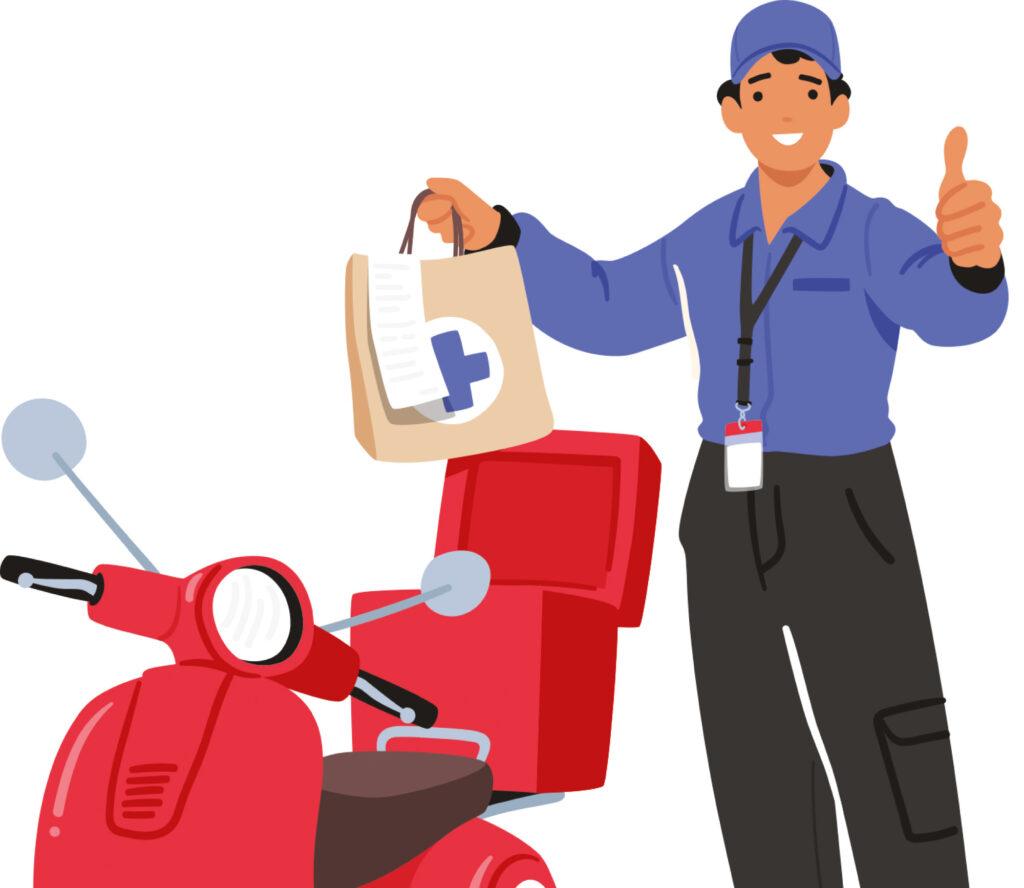Home » Medication safety: Delivery of medicines from a retail pharmacy business
The processes and procedures that are needed for the provision of a medicines delivery service from a community pharmacy, is the subject of this month’s medication safety article, authored by Hamedah Safi, a fourth-year pharmacy student at Trinity College Dublin.

A pharmacy delivery service allows medication dispensed in a community pharmacy to be directly delivered to the patient, their carer, or another authorised person. Pharmacists and pharmacy owners must not interpret this as a postal delivery service — medications should never be left in any location for later collection by the patient.
Before providing a home delivery service to a patient, pharmacists must assess the risks and benefits of the service based on the individual patient’s care needs. Although in-person collection is generally preferred, certain circumstances may necessitate delivery. Engaging and listening to patients helps the pharmacist conduct the risk-benefit assessment and ensures shared decision-making. Patients must sign a consent form authorising the pharmacist to provide the delivery service. Pharmacists considering implementing a home delivery service for medicines must ensure that policies, procedures and training are in place before offering this service. At a minimum, all the policies and standard operating procedures (SOPs) outlined below (including the following sections) should be in place:
For pharmacies that are already providing deliveries, it is essential to regularly audit the service to ensure compliance with regulations, patient safety and service efficiency.
Before supplying medications via delivery, pharmacists must:
Pharmacists must ensure that the delivery system used is suitable for the type of medicine being delivered. The delivery system must adhere to the following standards:
“For pharmacies that are already providing deliveries, it is essential to regularly audit the service to ensure compliance with regulations, patient safety and service efficiency.”
In the event of complications during the delivery process, such as adverse weather conditions or vehicle breakdowns, pharmacies and delivery personnel must adhere to the pharmacy protocols and should:
Pharmacies must maintain accurate records for each delivery, including:
It is essential that all the above factors are considered and implemented when using a delivery system to get medications to patients in a safe and timely manner. Patients are entitled to the same quality of care whether they are collecting their medications face-to-face from the pharmacist in a pharmacy or if they are receiving their medications via a delivery system.
Additional information regarding delivery of medicines from a retail pharmacy business is available on the PSI website, psi.ie.
References available on request.
Hamedah Safi

4th year pharmacy student, Trinity College Dublin
Highlighted Articles